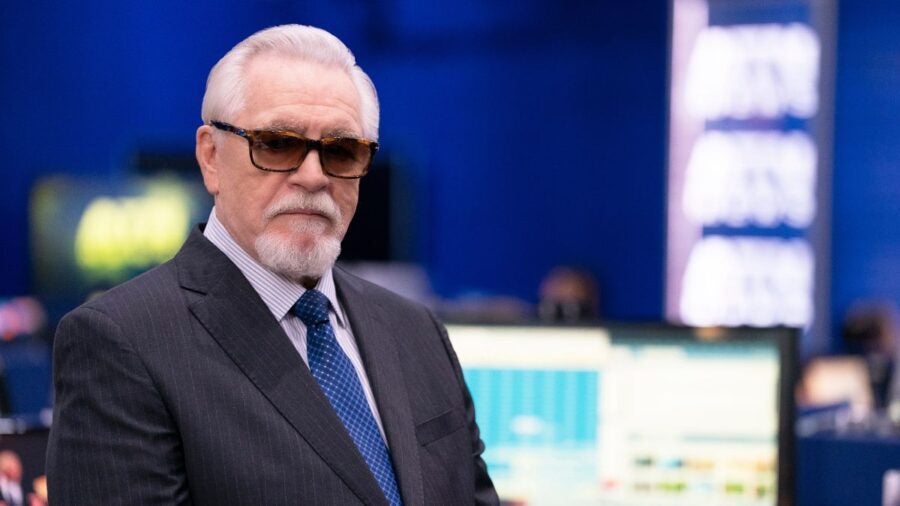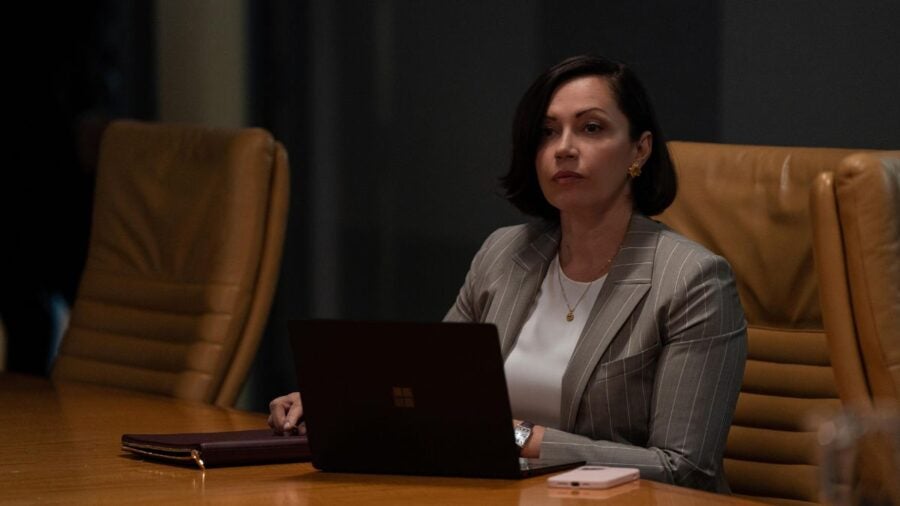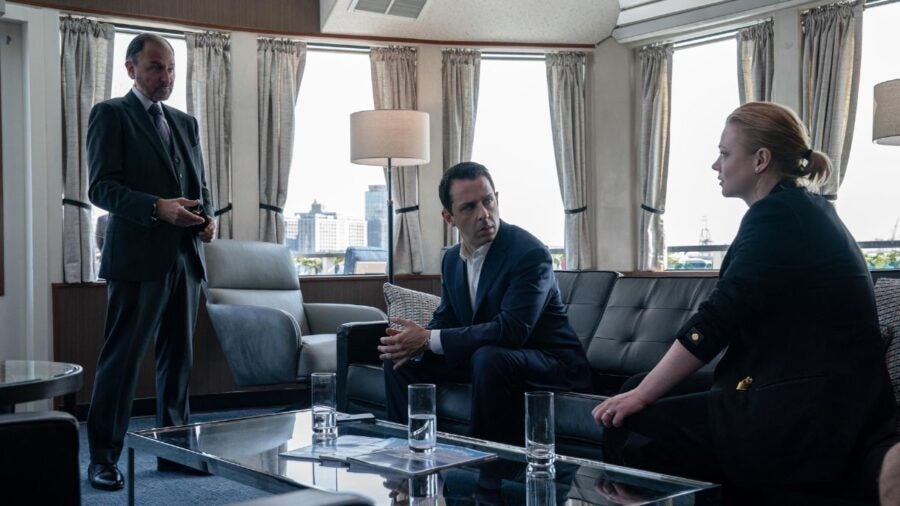
Warning: this article contains spoilers for season 4, episode 3 of the HBO show Succession.
Company boards are trained to prepare for the worst, but an unexpected death of a business leader can precipitate a number of challenges that few organisations are ready for.
In the most recent episode of the HBO show Succession, the demise of the media mogul and CEO of Waystar Royco, Logan Roy, triggers a rapid response from his immediate team. Just minutes after his death, they scramble to quickly formulate a statement and inform the board.
While some viewers thought this appeared insensitive, speed is of the essence in this kind of crisis, according to Allison Braley, partner and head of marketing and communications at Bain Capital Ventures.
Braley was particularly impressed by Karolina Novotney, head of PR for the fictional conglomerate, who was able to immediately focus on the necessary work following his death – before the plane had even landed. “It’s good that she was able to keep a cool head in the moment,” she says. “That’s a necessary skill in comms.”
Creating a crisis plan
One thing that would have aided Novotney and the other members of the executive team was a crisis plan.

“A good crisis plan enables the company to put forth a thoughtful, unified response more quickly,” Braley says. “Often the company won’t have all the facts right away, so a statement about what is known at the time and how the company is working to resolve the issue can be reassuring.”
An effective crisis plan should outline any risks to the business associated with that type of incident as well as the relevant legal frameworks and company policies. It will also designate key roles for board members and the executive team, such as family liaison, media contact or interim CEO. Backups should also be determined in case someone is unavailable at the time.
“Crisis responses can go awry when you try to bluff, because then, when a clearer picture emerges, you have to backtrack,” Braley adds. “It’s better to be open and honest about what’s known and in a complex situation you may not know everything right away.”
Mitigation planning can also help to reduce the risk of any unforeseen events impacting business leadership. For example, entertainment production group Argonon stipulates that senior management never travels together. “Your first step starts before the crisis hits,” says the company founder and CEO James Burstall.
Can the death of a CEO affect a company’s share price?
Speed is of particular importance for publicly traded companies. In the US, the Securities and Exchange Commission requires listed businesses to disclose material information in a timely fashion. Similarly in the UK, the death of a CEO would be regarded as a material piece of business information which would have to be disclosed to market participants.
“There’s no way that you could say the death of a CEO isn’t going to be relevant to investment decisions,” says Dr Roger Barker, director of policy and governance at the Institute of Directors. “Sharing this information is necessary to maintain a fair market and fair access to key information about the company.”
In such instances, the London Stock Exchange has an official reporting system to disclose material information.
It is news that will never be easy to deliver but sending a message of stability is critical
As seen in the episode, the announcement of a CEO’s death can have a significant impact on a company’s share price. Waystar Royco’s tumbled as soon as the passing of Roy was publicly announced. “In almost any scenario, it’s going to create uncertainty, which the markets don’t like,” Barker explains.
This is particularly true when investors regard the chief executive as indispensable. When JPMorgan Chase chairman and CEO Jamie Dimon disclosed his cancer diagnosis to shareholders and employees in 2014, the bank’s share price fell by 1.3%.
Matters can be even trickier when it comes to family-owned companies, such as the fictional Waystar Royco. Doubts can arise when the founding entrepreneur hands over the business to the next generation.
“If you are going to pursue that approach, the smart thing to do would be to make sure that your children have the right education and professional experience to command the market’s confidence when they take over, but that might not always be the case,” Barker adds.
Sarah Austin, founder of The Lloyds Bank British Business Excellence Awards and non-executive director at Tate Galleries, has experience in dealing with the sensitive subject of the severe illness of a CEO first hand.
While she worked for a FTSE-listed firm, both the chair and CEO were diagnosed with cancer. “The news was kept rather hush at the time to ensure that the share price didn’t fall,” she says.
But Austin believes changes to corporate culture mean that responses to serious illness or death are now much more compassionate. “It is news that will never be easy to deliver but sending a message of stability is critical,” she adds. “It also requires strong interim leadership to take charge and steady the ship in what could be choppy waters.”
Finding a successor
In Succession, the stage is set for the rest of the series to follow the jostlings for power at the top of Waystar Royco as the lead characters vie to determine who becomes the next leader. But while this scenario makes for entertaining television, the lack of a predetermined replacement was perhaps Roy’s biggest mistake.
“Establishing an interim CEO would have been really helpful, even if the board had not yet met to ratify a more permanent appointment,” Braley says. “That was the type of decision you’d like to have seen Logan Roy be a part of when he was alive in order to make the board approval merely a formality.”
However, much like in the show, many companies don’t have a meaningful CEO succession plan in place. In a survey of 500 UK CEOs, private equity firm ECI Partners found that almost half (49%) have no succession plan. This was despite the fact that there has been a 25% increase in the proportion of CEOs who plan to leave their business within the next 12 months.

Its research also suggested that succession planning is becoming less of a priority for business leaders, with 19% of CEOs saying it was not on their to-do list for 2023. “Often the existing CEO doesn’t like to have a discussion about their successor because it can be a sensitive topic,” Barker says. “For some, even talking about it can be seen as detracting from their authority.”
In instances where a successor is not already in place, it can be common for the chair of the board or other director to step into the role on an interim basis. While it can be seen as poor corporate governance for a board member – whose responsibility is to hold management to account – to also hold an executive role, Barker claims that: “In those exceptional circumstances, most external commentators would view that as acceptable, as long as it’s for a temporary period.”
Lastly, it’s important for the board of directors to consider how the news will be broken to the rest of the business and other stakeholders, including customers, clients and suppliers, some of whom will have had close relationships with the CEO in question.
“Remember that your employees will be grieving too,” says Claire Williams, chief people officer at HR software provider Ciphr. “You should consider what support is available to them, such as employee assistance programmes, time off or counselling services.” Companies House, insurers, benefits providers and solicitors will also have to be notified of the passing.
While the death of a CEO is an exceptional event, a plan that sets out the next steps can help businesses to navigate the turmoil that can unfold in the aftermath. The more preparation that can be done, the better.

Warning: this article contains spoilers for season 4, episode 3 of the HBO show Succession.
Company boards are trained to prepare for the worst, but an unexpected death of a business leader can precipitate a number of challenges that few organisations are ready for.
In the most recent episode of the HBO show Succession, the demise of the media mogul and CEO of Waystar Royco, Logan Roy, triggers a rapid response from his immediate team. Just minutes after his death, they scramble to quickly formulate a statement and inform the board.
